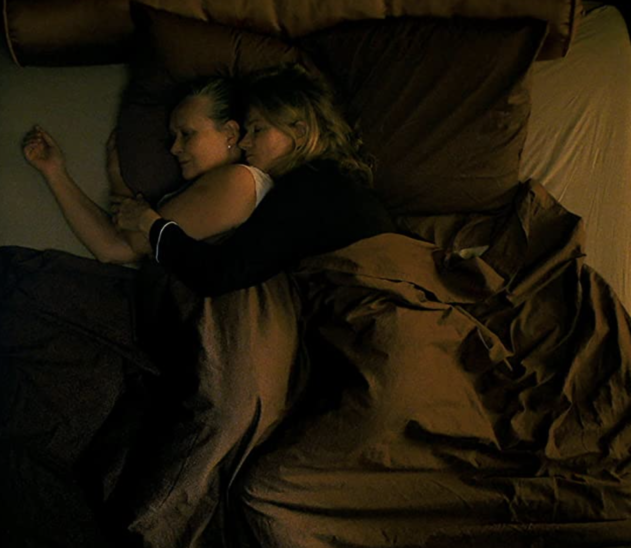Neighbors. Friends. Longtime secret lovers. A bond that cannot be undone: “TWO OF US”
It is a story that resonates for many men and women all over the world. While society is changing, there is still prejudice in all societies against same-sex couples.
In Filippo Meneghetti’s sensitive drama “Two of Us”, Barbara Sukowa and Martine Chevallier portray an older lesbian couple who have a fiery sexual attraction and an enviable mutual devotion.
Madeleine (Chevalier) is a mother and grandmother as devoted to her family as she is to her soulmate Nina (Sukowa). Keeping her and Nina’s love a secret for decades is beginning to take a toll.
Lying to her family for so long has made Madeline lose pieces of herself and has estranged her from her son, who resents his mother for not loving his father enough. At this point, and after so long, coming out is not an option.
Because of the way things must be for the two women, they live in apartments across the hallway from one another. The ruse works, as Madeline’s family believes that Nina is a close friend who helps her neighbor out from time to time.
The two lovers’ world is bumped off its axis when Madeline suffers a stroke and will now necessitate a full-time a personal care assistant. Eventually Madeline regains some mobility, but Madeline cannot speak, and her love is cut out of her life almost entirely. Nina is not needed anymore, and Madeline is unable to voice a defense for her lover’s presence—aware but helpless.
For Nina, the pain of their separation is tantamount to losing the ability to breathe.
The cinematography, by one Aurélien Marra, is carefully designed to highlight the separation between the two women and the isolation and helplessness that overwhelms Nina. Marra uses a balance of light and darkness to bring out the required emotions, especially the precise dim lighting in the hallway that separates the lovers.
The forced separation of Madeline and Nina is unnerving for the audience and unbearable for Nina.
Sukowa is pure excellence as Nina. The role is demanding, and the actress matches it with precise emotional beats that never feel false.
Chevallier is equally excellent as a woman so devoted to both family and her lover that she has to make compromises to maintain both.
The screenplay (from Meneghetti, Florence Vignon and Malysone Bovorasmy) takes a philosophical look at the “love conquers all” mystique that is given to so many relationships. Their take on love makes the relationship between Madeline and Nina vital.
The intimacy between them is a lifeline for each. While their world together is idyllic and pure, all other relationships force a performance of sorts that untethers the two from their blissful existence, causing a betrayal of trust that is forced due to the weight of revealing the truth.
Meneghetti directs the film assuredly and refuses to imbue his film with even the slightest of melodrama. The filmmaker creates a complex, humanistic, scenario of devotion.
It is heartbreaking, taking note of the men and women, so many, in same-sex relationships who are forced to hide their love.
This is a film that speaks to the emotional confinement of living in a world that just might not accept your significant other.
It is also one that addresses bitterness and rebelliousness—most importantly, it is a moving piece about two people in love.
It is in that unbreakable love between Madeline and Nina where the film finds its soul. And what a pure and incredibly moving soul it is.
news via inbox
Nulla turp dis cursus. Integer liberos euismod pretium faucibua




